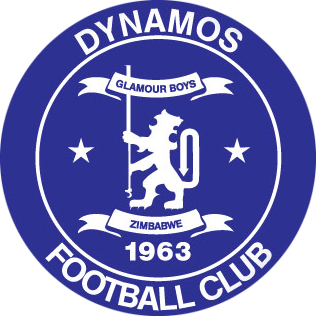| Tournament details | |
|---|---|
| Teams | 12 (from 1 confederation) |
| Final positions | |
| Champions | |
| Runners-up | |
| Tournament statistics | |
| Matches played | 12 |
| Goals scored | 25 (2.08 per match) |
This page provides summaries to the 2003 COSAFA Cup.
| Tournament details | |
|---|---|
| Teams | 12 (from 1 confederation) |
| Final positions | |
| Champions | |
| Runners-up | |
| Tournament statistics | |
| Matches played | 12 |
| Goals scored | 25 (2.08 per match) |
This page provides summaries to the 2003 COSAFA Cup.
Winners of the first round advanced to the quarter-finals.
| Madagascar | 2–1 | |
|---|---|---|
| Ruphin Menakely Jean-Jacques Radonamahafalison | Kersley Appou |
| Mozambique | 0–0 (5–4 pen.) | |
|---|---|---|
| Zimbabwe | 1–0 | |
|---|---|---|
| Adam Ndlovu |
The four quarter-finalists of the 2002 edition South Africa, Malawi, Swaziland and Zambia received byes into quarter-finals.
| Botswana | 1–1 (1–4 pen.) | |
|---|---|---|
| Masego Ntshingane | Moses Chavula |
| Zambia | 4–2 | |
|---|---|---|
| Noel Mwandila Harry Milanzi Collins Mbesuma | To Tico Tico |
| Malawi | 1–1 (4–2 pen.) | |
|---|---|---|
| Russell Mwafulirwa | Sashi Chalwe |
| Zimbabwe | 2–0 | |
|---|---|---|
| Peter Ndlovu |
| Malawi | 1–2 | |
|---|---|---|
| Russell Mwafulirwa | Albert Mbano Zvenyika Makonese |
| Zimbabwe | 2–0 | |
|---|---|---|
| Charles Yohane Peter Ndlovu |
| 2003 COSAFA Cup |
|---|
Zimbabwe Second title |

Harare, formerly known as Salisbury, is the capital and largest city of Zimbabwe. The city proper has an area of 982.3 km2 (379.3 sq mi), a population of 1,849,600 as of the 2022 census and an estimated 2,487,209 people in its metropolitan province. The city is situated in north-eastern Zimbabwe in the country's Mashonaland region. Harare is a metropolitan province which also incorporates the municipalities of Chitungwiza and Epworth. The city sits on a plateau at an elevation of 1,483 metres above sea level, and its climate falls into the subtropical highland category.

Blantyre is Malawi's centre of finance and commerce, and its second largest city, with a population of 800,264 as of 2018. It is sometimes referred to as the commercial and industrial capital of Malawi as opposed to the political capital, Lilongwe. It is the capital of the country's Southern Region as well as the Blantyre District.
Qualification for the 2004 African Cup of Nations.

Listed below are the dates and results for the 1998 FIFA World Cup qualification rounds for the African zone (CAF). For an overview of the qualification rounds, see the article 1998 FIFA World Cup qualification.

Dynamos F.C. is a Zimbabwean professional football club based since 1963 at Rufaro Stadium, Mbare, Harare. The team currently participates in Zimbabwe's top-tier, the Premier Soccer League. Founded in 1963 after a merger between two lesser teams in Mbare, Harare Township, Rhodesia, Dynamos quickly became one of the strongest sides in the Rhodesian league, and by the attainment of the independence of Zimbabwe in 1980 had become the country's most successful football team, having won six national championships. Dynamos have since won 22 league championships – a national record – and at least 16 trophy/cup honours.
This page details the process of the 1998 African Cup of Nations Qualification phase. Burkina Faso, as hosts, and South Africa, as title holders, qualified automatically.
This page provides summaries to the 2004 COSAFA Cup.
This page provides summaries to the 2002 COSAFA Cup.
This page provides summaries to the 2001 COSAFA Cup.
The 2000 COSAFA Cup is the 4th edition of the football tournament that involves teams from COSAFA. Zimbabwe beat Lesotho 3–0 in the final for their first COSAFA Cup title.
This page provides summaries to the 1999 COSAFA Cup.
This page details the process of qualifying for the 2002 African Cup of Nations.
The African Men's Olympic Qualifiers were held to determine the African national teams for under 23 which participated at the 2008 Summer Olympics football tournament held in Beijing.
This page details the process of the 2012 Africa Cup of Nations qualification phase. Forty-six African nations, including hosts Gabon and Equatorial Guinea, entered the competition. Gabon and Equatorial Guinea automatically qualified as host countries. The other 44 nations were drawn into eleven groups, each containing 4 teams. Togo was later added to Group K after its reinstatement.
This page details the process of qualifying for the 2000 African Cup of Nations.
The Qualification for the 1996 African Cup of Nations took place in 7 groups of 6 teams each, with the top 2 teams from each group progressing to the tournament. Nigeria and South Africa qualified automatically, as champions and hosts respectively. Qualification began in September 1994 and ended in July 1995.
The CAF second round of 2006 FIFA World Cup qualification began on 5 June 2004 and finished on 8 October 2005.
The CAF second round of 2002 FIFA World Cup qualification was contested between the 25 winners from the first round split across five groups.
Group L of the 2017 Africa Cup of Nations qualification tournament was one of the thirteen groups to decide the teams which qualified for the 2017 Africa Cup of Nations finals tournament. The group consisted of four teams: Guinea, Malawi, Zimbabwe, and Swaziland.